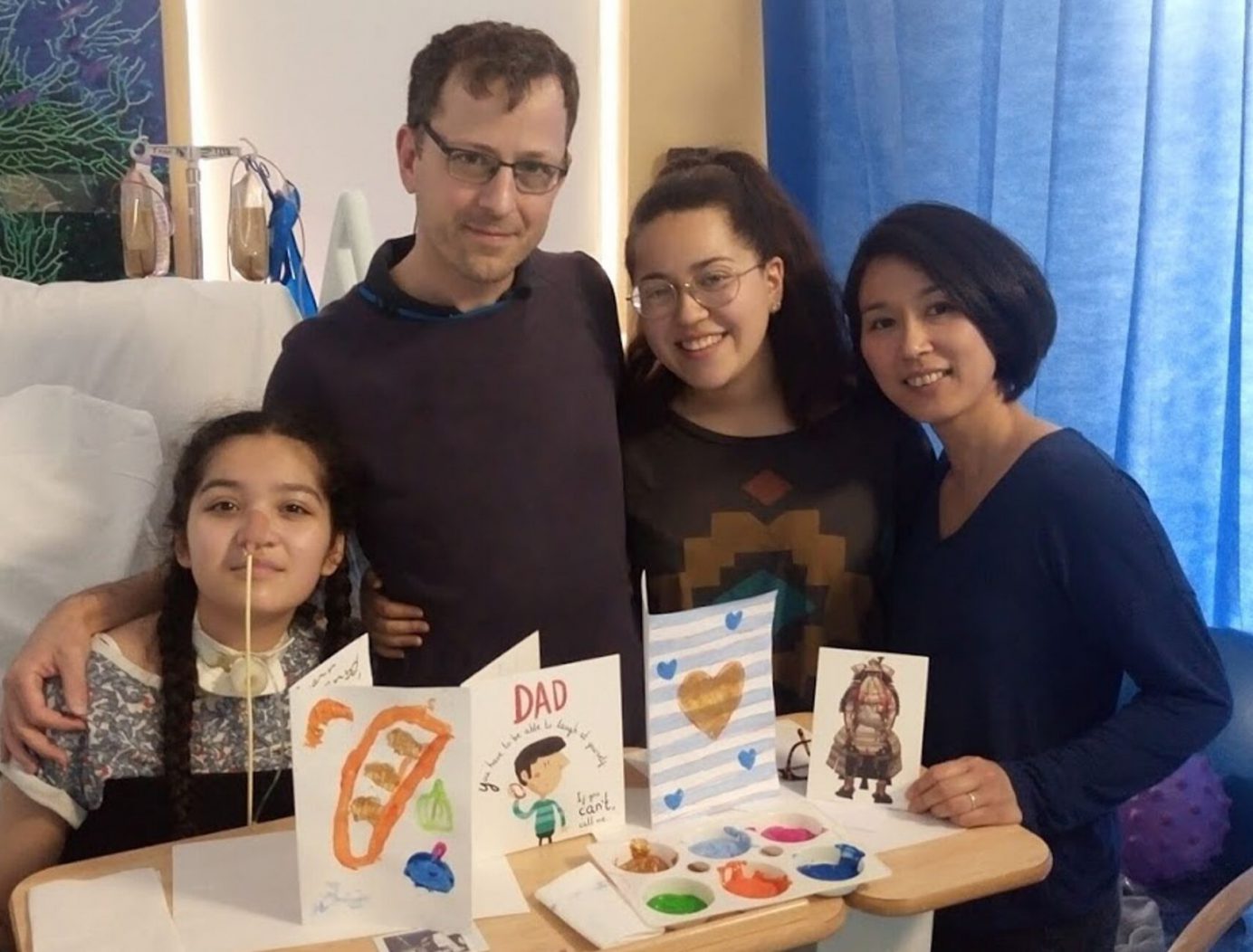
Shock Diagnosis: Emilie's Story
September 16, 2019
Guest Blogger: Ikuko
In May 2017, I noticed our fifteen-year-old daughter Emilie started to say she found it difficult to swallow her food, which developed into an occasional coughing fit which would cause sickness. Our GP was puzzled but could find nothing wrong.
A few months later, Emilie was complaining of being tired, was losing weight and had already missed lots of days of school. She quit her dancing and gymnastics because she ran out of energy within ten minutes.
By February 2018, with no improvement and no viable cause resulting from all the various investigations, Emilie had an MRI scan. The following day the doctor explained that when he looked at the first scan, he saw something “abnormal.” So we quickly headed to King’s College Hospital but had to wait four hours in A&E. Then, at 3:00 am, a neurosurgeon came to tell us the bad news: Emilie had a brain tumour and needed to be operated on immediately. It was a shock beyond belief to hear those words.
She was in theatre for 14 hours and the longer she was under, the more we worried that she might not survive. The first few days and nights were a blur of heightened emotions. She survived the operation, but when she came up to the Intensive Care Unit, she didn’t look anything like herself.
Her face was swollen, she was attached to so many tubes and wires, and when I first tried to speak to her, she was unresponsive and under heavy sedation. The neurosurgeons told us it was a ‘wait and see’ situation and that they had no idea how full her recovery would be.
My husband and I spent the first weekend in the hospital room but were told we would be better off in Ronald McDonald House Camberwell. When we first entered the House, I was so surprised. We were warmly welcomed, and I couldn’t help noticing how spacious and homely it was; we would have privacy in our bedroom and be able to enjoy the garden. It felt like a second home after only about a week. We had no idea how long we would be in the hospital for, so I moved in permanently to be close to Emilie, not realising we would be there for six months. I spoke to a few parents staying there, who were going through a horror story of their own, just as we were. I felt supported by this little community.
Emilie made steady progress after her operation. We’ve had a few setbacks, like her tracheostomy which means she can’t speak or eat, however, we’ve also had miraculous results in physiotherapy and occupational therapy. She can walk a little, she can transfer to a toilet by herself from a wheelchair, and she can write, dress, undress and wash, and can paint to her heart’s content. She used to love art before she had neurosurgery, but she absolutely adores it now and we love how she’s able to express her personality through it. She’s found a new way to communicate using a mix of sign language, finger spelling, mouthing, text-to-speech app, and art. She has kept her sense of humour through all of this and makes us all laugh every day.
Emilie also started a fundraiser to show her gratitude to her neuro rehab team by ‘painting’ drag makeup on the staff on her ward. It’s inspired by her love of RuPaul’s Drag Race, and she’s brought so much joy and laughter to a sad and stressful environment.
In September 2018, Emilie was discharged from King’s College Hospital and admitted to The Children’s Trust in Tadworth, which is a rehabilitation centre for children with brain injuries.
There, Emilie worked every day in physiotherapy, occupational therapy, speech and language therapy, and music therapy to regain her functions. The intense therapies helped Emilie to regain control, balance, and coordination in all areas, especially in walking and handwriting.
When she left King’s College Hospital, she had made good progress in walking and handwriting for sure, but by the end of her three-month stay at The Children’s Trust, she could walk independently, her handwriting became legible and she could write and type faster. She made friends there and had fun learning about her condition. She especially enjoyed riding her tricycle outside, making us all run behind her with her equipment!
Emilie was discharged home just in time for Christmas and enjoyed being at home for the first time in ten months. Back in November, Emilie expressed a wish to go back to school in January and so her previous school has made some adjustments in order to accommodate her needs.
On 7 January, she returned to school to everyone’s amazement. That week, Emilie tried one lesson per day every day and then increased the duration by an hour every week and now goes to school for four hours a day. Emilie hasn’t missed a day of school yet!
On 22 February, we celebrated her first anniversary since her operation. She’s come so far in a year and we can’t thank all the professionals involved enough for all the hard work, expertise and dedication.
Help us provide free home away from home accommodation to support families with children in hospital with a donation.
